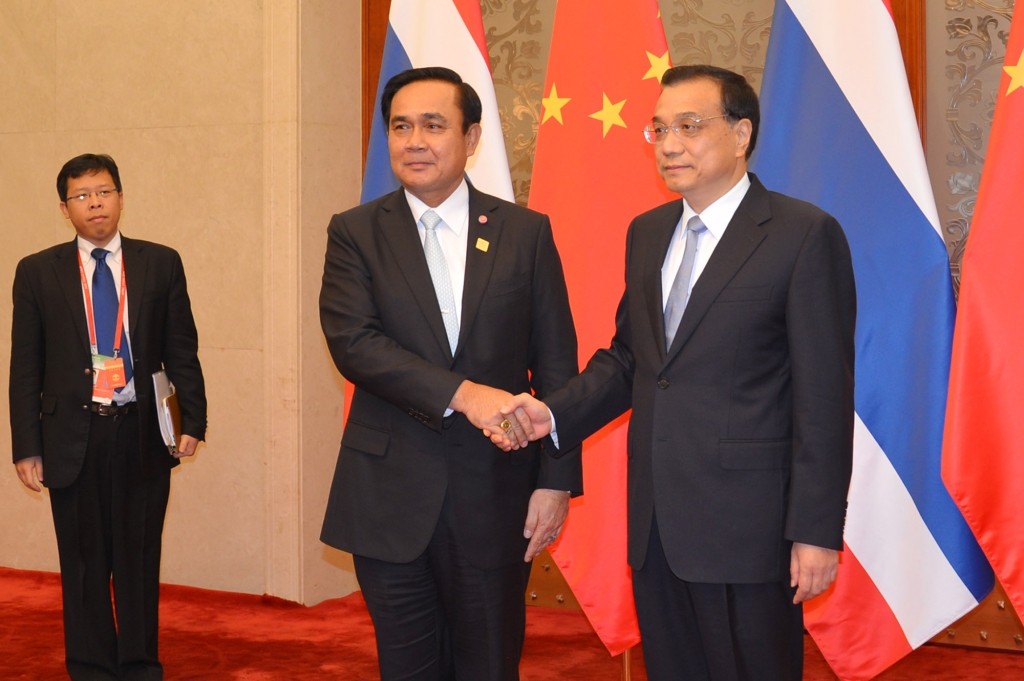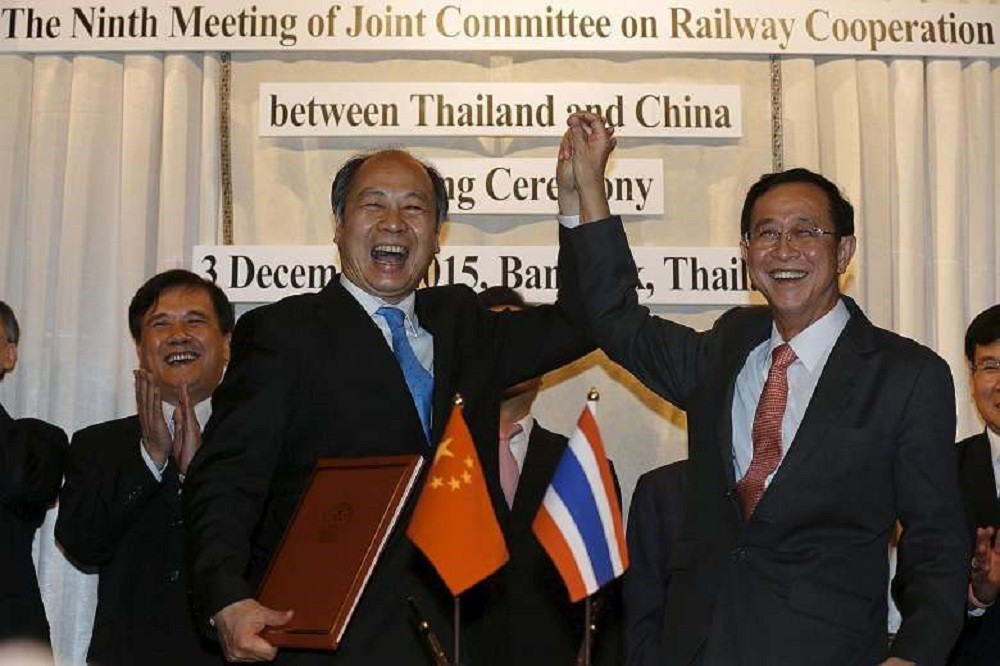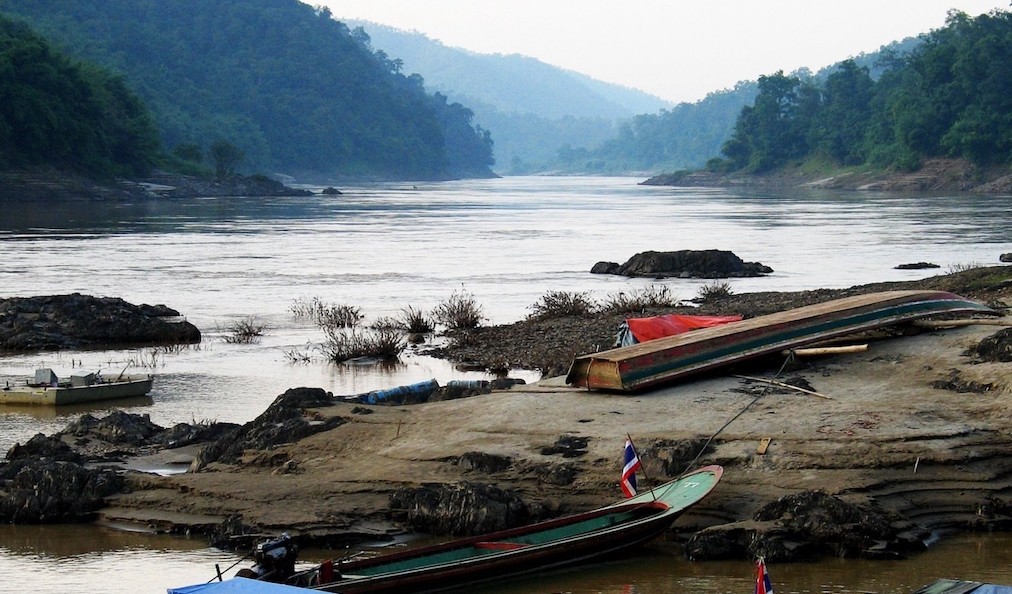Due to high cost and American and European anti-dumping tariff, the business of China solar panel manufacturers was gloomy in past 2 years. During this depression, the renewable energy markets in newly emerging Asian countries became the substitute of China manufacturers.
Thai Rayong Industrial Park, 140 kilometers from Bangkok, Thailand, has become the Thai Optical Valley in the eyes of outsiders, thanks to many China enterprises’ continuous investment in PV projects . The staff of Thailand branch of ZhongLi Talesun Solar told Ta Kung Pao reporters, this project including 500MW PV cell and 500MW PV module got into operation, mainly because of the Thai government’s new energy policy.
In order to reduce the dependence on gas power generation, Thailand has become the most active country to promote green energy among southeast countries. Thailand plans to achieve in 2036 that clean energy consumption will account for 30% from the total, comparing with 8% now. To achieve the goal, Thailand plans to construct clean energy power stations with total scale of 19,635MW before 2036. China PV enterprises response actively, and many China super PV enterprises like ZhongLi Talesun Solar, TSL and YingLi Solar consecutively enter Thailand market.
Reshape the role of global supply chains
Wu Shanshan, executive Director of Roland Berger Strategy Consultants said in an interview of Ta Kung Pao, China PV enterprises set factories in Thailand, mainly due to the uprise of Chinese labor cost. In Thailand, not only the labor cost is lower, but the policy, natural recourses and geographical advantages were more attractive. Although there were limits of Thailand PV market, China PV enterprises transferred some technologies to southeast by setting factories in Thailand which was also a kind of reposition for themselves in global supply chains.
Wu Shanshan reminded China PV enterprises which invest in Thailand, “Do not position themselves as labor-intensive companies ““Overseas PV are mainly based on manufacturing and productive engineering type, no mater by investment running or technological projects, China PV enterprises should position themselves by getting more added value instead of pure manufacturing ”Having Known the enormous destruction to ecology from hydropower and coal power, PV can be called the best clean energy currently.
Hong Wei, vice president of China Energy Economic Research, chief photovoltaic industry researcher told Ta Kung Pao reporters, once the cost of PV power generation were lower than traditional energy, the proportion of PV power generation would increase significantly, even exceeded the pre-set one.
Apipong Khunakornbodintr, the minister counsellor of Beijing Office of Thailand BOI, said the current PV market had become saturated in Thailand; it was obviously not enough for China enterprises to target limited market in Thailand. “But taking Thailand as the center, then radiating Southeast Asia will promote the rapid development of global market.”
The chairman of Trina Solar, Gao Jifan said, from the current overseas layout of TS, we not only responded to European trade protection, but also acquired better and bigger market from local country and capacity investment countries. After investigated for 2 years, Thailand was the best choice.
Thai political variables cannot be ignored
Although called green energy, the contamination which generates from PV power station module production is inevitable. Apipong said, “Due to the difference of environment protection law and natural conditions, China investors need to spend more time to know the thoughts of local people in Thailand so as to get permissions from them.”
In recent years, Thailand’s political turmoil has become a problem that China PV enterprises worry about. They are afraid that the contracts signed before get invalid after the change of government.
Some scholars also believe the current political situation in Thailand is generally stable, but unrest factors still exist, these political risks requires China enterprises to prepare well for any changes.
However, the director of Thai DT law office, Shi Datuo said, these worries were superfluous, “Thailand is a country with the spirit of contract, as long as the legitimate rights and interests acquired through legal procedures, all will be under legal protection
New vitality for PV industry after 5 years hardship
From overreliance on overseas market to focus on domestic market, from purely processing plant to autonomous technology, after 5 years hardship, China mainland PV enterprises find new opportunities for development, and China mainland has become the most promising market.
Recalling the development of China PV enterprises in recent years, Wu Shanshan, the executive director of Roland Berger Strategy Consultants, said with mixed feelings, over the past few years, China mainland PV industry has been facing the problem of excess production, especially for silicon and components, “3 or 5 years ago, the mainland PV enterprises only had overseas market, and the silicon technology was also owned by foreign enterprises, China enterprises just manufactured, formed and sold. Large quantities produced so fast that it caused excessive centralized production, coupled with depressive economic situation and ‘Anti dumping and countervailing’, excess capacity could not be absorbed, the situation became passive and the pollution remained in China. ”
This situation turned for better in nearly one year, mainly because China government strived to develop solar power, improved the requirement of domestic market, and numerous China PV enterprises has turned attention to overseas market. Meanwhile, after several years’ hardship, China PV market reshuffled, some enterprises closed down or made transitions. Currently, the utilization rate of PV capacity has reached 80%-90%.
Although some China PV enterprises which refused to give up overseas market choose Thailand or other southeast countries as its overseas center, that domestic huge PV market and government ambitious target is undeniable, which also make China market become the most attractive cake. In the end of 2015, the total installed capacity of China PV reached 43GW, exceeding Germany, became the biggest PV market in the world.
Wu Shanshan said frankly, China PV industry was still in the growth stage in which electricity cost declined, capital market started to target at PV industry, and government began to adjust subsidies. Wu Shanshan believed PV was the most potential one in future energy structure. “The scale and capacity of domestic PV market is very promising, it will keep positive in a short time.”
Prepare well and notice safe landing
“If you can find a cheaper one, please inform me.”Maybe only China PV enterprises qualify to advertise like this. A director of Thailand local PV company, who declined to be named, complained to Ta kung pao, China enterprises entering Thailand market brought stress to him. But some astute Thailand companies have taken measures by actively cooperating with China enterprises.
Thailand Demeter Company and Yingli set up a joint venture in January which produces polysilicon solar PV panels in Thailand. But China investors should pay more attention to the problem of safe landing behind its prosperity when investing in Thailand, said the director of DT law office Shi Datuo. “After all, China investors are investing overseas, it is necessary to prepare well before investing. Local laws should be basically understood, especially for the industry access. Many industries in Thailand have limitations for foreign investment, but it can be exempted by applying preferential policy or foreign license so as to be the dominant stake holder. ”Shi Datuo called on in an interview of Ta Kung Pao, “China enterprises which investing in Thailand should focus on getting familiar with Thai folk culture, and the difference of management culture and labor protection system between China and Thai enterprises. ”
This was produced in collaboration with The Mekong Eye and Mekong Matters Journalism Network and translated by The Mekong Eye, with full editorial control to the journalist and their outlet.
Lead photo: Thai Prime Minister Prayut Chan-o-cha and Chinese Prime Minister Li Keqiang vowed to implement a comprehensive to their bilateral relations at the 22nd Asia-Pacific Economic Cooperation (APEC) summit in Beijing, November 2015.
PHOTO: MCOT





